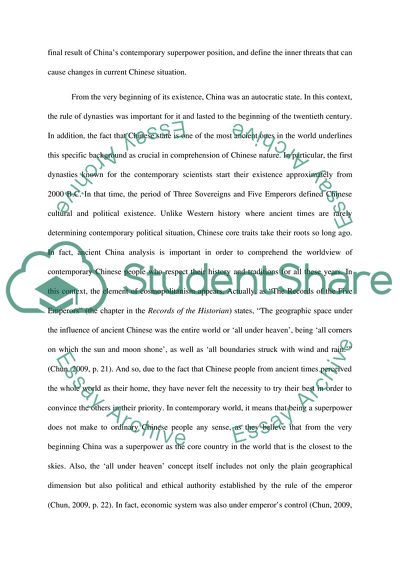Cite this document
(The Political System of China Coursework Example | Topics and Well Written Essays - 3000 words, n.d.)
The Political System of China Coursework Example | Topics and Well Written Essays - 3000 words. https://studentshare.org/politics/1854392-politics-of-asia
The Political System of China Coursework Example | Topics and Well Written Essays - 3000 words. https://studentshare.org/politics/1854392-politics-of-asia
(The Political System of China Coursework Example | Topics and Well Written Essays - 3000 Words)
The Political System of China Coursework Example | Topics and Well Written Essays - 3000 Words. https://studentshare.org/politics/1854392-politics-of-asia.
The Political System of China Coursework Example | Topics and Well Written Essays - 3000 Words. https://studentshare.org/politics/1854392-politics-of-asia.
“The Political System of China Coursework Example | Topics and Well Written Essays - 3000 Words”. https://studentshare.org/politics/1854392-politics-of-asia.


